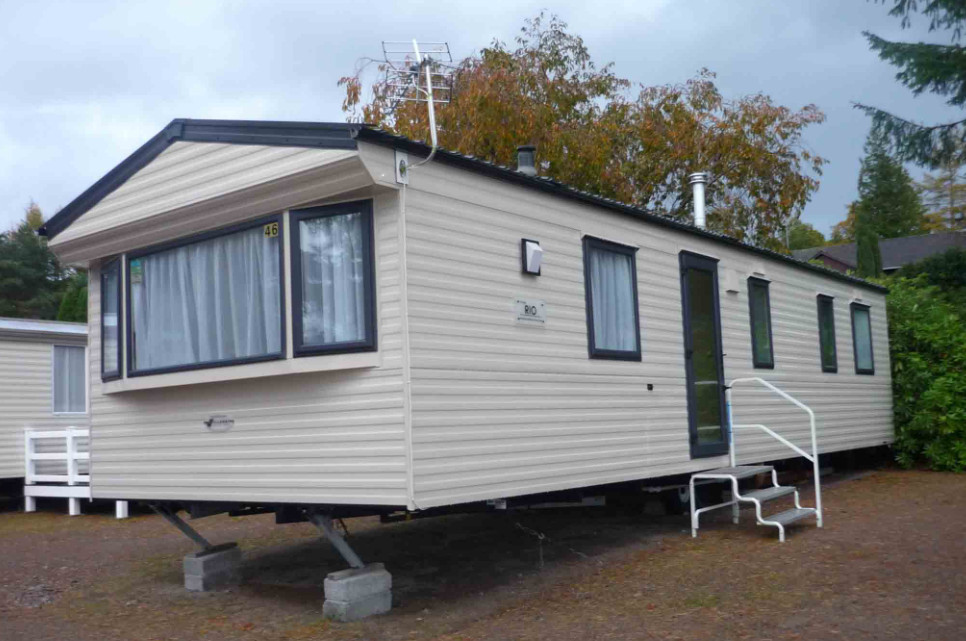In the realm of affordable housing, mobile homes, and trailer homes are two terms often used interchangeably. However, these dwellings have distinct characteristics that set them apart. In this article, we’ll delve into the nuances of mobile homes and trailer homes to shed light on their differences and help potential homeowners make informed decisions.
Defining Mobile Homes
Mobile homes, also known as manufactured homes, are factory-built houses that are transported to a specific location for installation. Unlike traditional site-built homes, mobile homes are constructed off-site, usually in a controlled environment, ensuring a more streamlined and efficient building process. These homes comply with strict federal building codes set by the Department of Housing and Urban Development (HUD), ensuring safety, durability, and quality standards.
One key feature of mobile homes is their transportability. They are built on a steel chassis with wheels, making it possible to move them from one location to another. This mobility is particularly advantageous for individuals who may need to relocate due to job changes or other circumstances.
Understanding Trailer Homes
On the other hand, trailer homes are often associated with the idea of temporary or portable housing. They are generally smaller and more rudimentary in design compared to mobile homes. Trailers are often built on a non-permanent chassis, making them less stable and harder to move.
It’s crucial to note that the term “trailer home” can be a bit ambiguous, as it’s used to refer to different types of housing structures. Historically, the term “trailer home” was commonly used to describe early mobile homes, which were relatively basic and had a resemblance to travel homes. In contemporary usage, “trailer home” might also refer to tiny houses on wheels or other portable housing options.
Key Differences in Construction
One of the primary distinctions between mobile homes and trailer homes lies in their construction methods and standards. Mobile homes adhere to the HUD Code, a set of federal standards that dictate design, construction, strength, and durability. The HUD Code ensures that mobile homes meet specific safety and quality benchmarks, making them a reliable and viable housing option.
Trailer homes, on the other hand, may not be subject to the same rigorous standards as mobile homes. The term is broad and can encompass a variety of structures, from makeshift dwellings to tiny houses on wheels. Without a standardized code, the construction quality of homes can vary significantly, potentially leading to issues related to safety and durability.
Size and Design Variances
Another notable difference between mobile homes and trailer homes is the size and design variability. Mobile homes tend to be larger and more spacious, with standardized sizes that can range from single-section units to larger double-section or triple-section homes. These homes often come with features such as multiple bedrooms, bathrooms, and modern amenities.
Trailer homes, in contrast, are generally smaller and may have a more diverse range of designs. They can include tiny houses on wheels, which are compact and focus on maximizing space efficiency. While mobile homes often adhere to a standard size range, trailer homes can vary widely in size, style, and layout.
Zoning and Placement Regulations
The zoning and placement regulations for mobile homes and trailer homes can differ based on local ordinances and regulations. Mobile homes are typically subject to specific zoning codes that designate areas for manufactured housing. In many cases, mobile home parks or communities are established to accommodate these homes, providing infrastructure and services tailored to their needs.
Trailer homes, especially tiny houses on wheels, may face more challenges when it comes to finding suitable locations for placement. Zoning laws regarding the use of land and housing structures can be stricter for trailer homes, and not all areas are welcoming to these portable dwellings. Potential homeowners must navigate local regulations and ordinances to find legal and acceptable placements for their trailer homes.
Appreciation and Depreciation
The financial aspect of homeownership is a crucial consideration when comparing mobile homes and trailer homes. Mobile homes, built to federal standards and often installed in dedicated communities, may experience a more stable and appreciable value over time. These homes are designed to meet high-quality standards, and their value can be influenced by factors such as location, community amenities, and overall condition.
Trailer homes, especially those on wheels, may depreciate more rapidly than mobile homes. The perception of trailer homes as temporary or unconventional housing options can impact their resale value. Additionally, the lack of standardized construction and safety codes for some trailer homes can contribute to depreciation concerns.
The Bottom Line
In summary, while mobile homes and trailer homes share some similarities, they are distinct in terms of construction, size, design, zoning regulations, and financial considerations. Mobile homes, constructed to meet federal standards, offer a more regulated and stable housing option with the potential for appreciation. Trailer homes, on the other hand, encompass a broad range of portable housing structures, with varying degrees of quality, safety, and regulatory compliance.
As individuals explore housing options, understanding these differences becomes crucial in making informed decisions about the type of dwelling that aligns with their needs, preferences, and long-term goals. Whether opting for the mobility of a manufactured home or the versatility of a trailer home, potential homeowners must carefully weigh the advantages and disadvantages to find the housing solution that suits their lifestyle and budget.
See Also:
- 10 Reasons Why People Choose to Retire in Florida
- Navigating Home Maintenance: Mobile Homes vs. Traditional Homes
- Unveiling the Profit Potential of Mobile Home Fixer-Uppers: A Comprehensive Guide
- Exploring the Florida Room: Purpose, Cost, and Considerations
- Understanding the Costs of New Single-Wide Mobile Homes in Florida

